How many calories do I burn a day and how many should I have to lose weight?
We explain how many calories you burn a day with or without exercise, and how many calories you need to burn to lose weight - with advice from the experts.
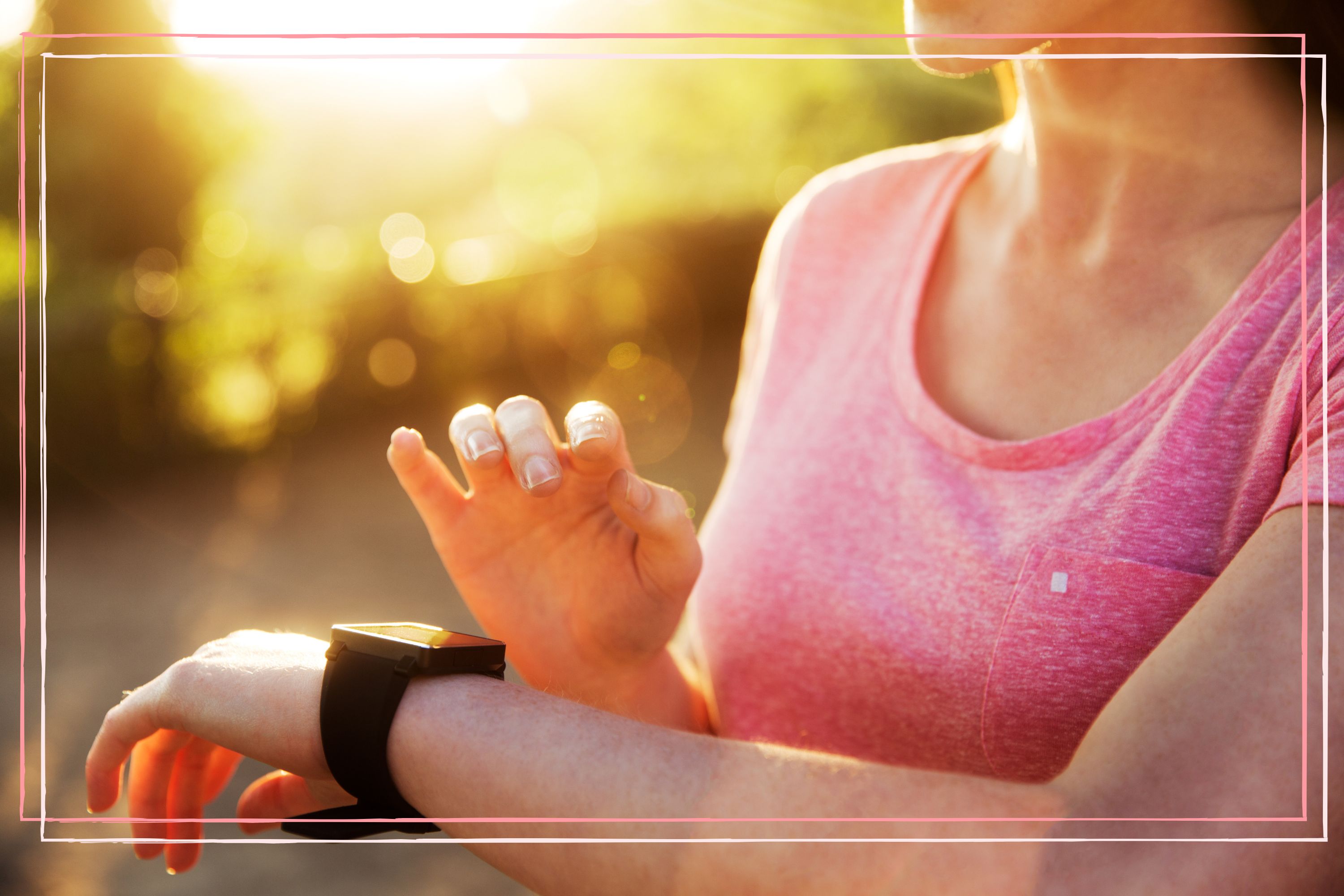

Ellie Hutchings
If you’re monitoring your weight or keeping track of your fitness progress, knowing how many calories you burn in a day can help you reach your goals.
Calorie counting is one of the most popular ways to lose or maintain weight. Whether you're looking to improve fitness and overall health or just want to feel more confident in your body, if you're someone who watches your calorie intake you've probably already done your research into low-calorie meals and got a list of your favourite low-calorie breakfast and low-calorie lunch ideas.
Calories are the amount of energy in food and drink, and we need them for our bodies to function properly. But while we all consume calories, it’s important to know that the answer to how many calories you burn in a day will be different for everyone, because it's all dependent on what you get up to. So, whether you’re looking to know how many calories you burn in a day through particular exercises or just through eating, drinking and breathing, this is what the experts want you to know.
How many calories do I burn a day?
Most people will burn over 1800 calories every day without doing any exercise at all, and this number will be higher for those who are more active. Other factors that can affect how many calories you burn include age, sex, height and weight.
Dr Greg Potter, nutritionist and chief science officer at Resilient Nutrition explains that the reason we burn so many calories without exercise is because we burn most of them just through daily bodily functions. "Our bodies have all sorts of different housekeeping functions they have to maintain even at rest. Your heart is always beating, your brain requires lots of energy. That resting energy expenditure actually makes up the majority of calories people burn each day," he says.
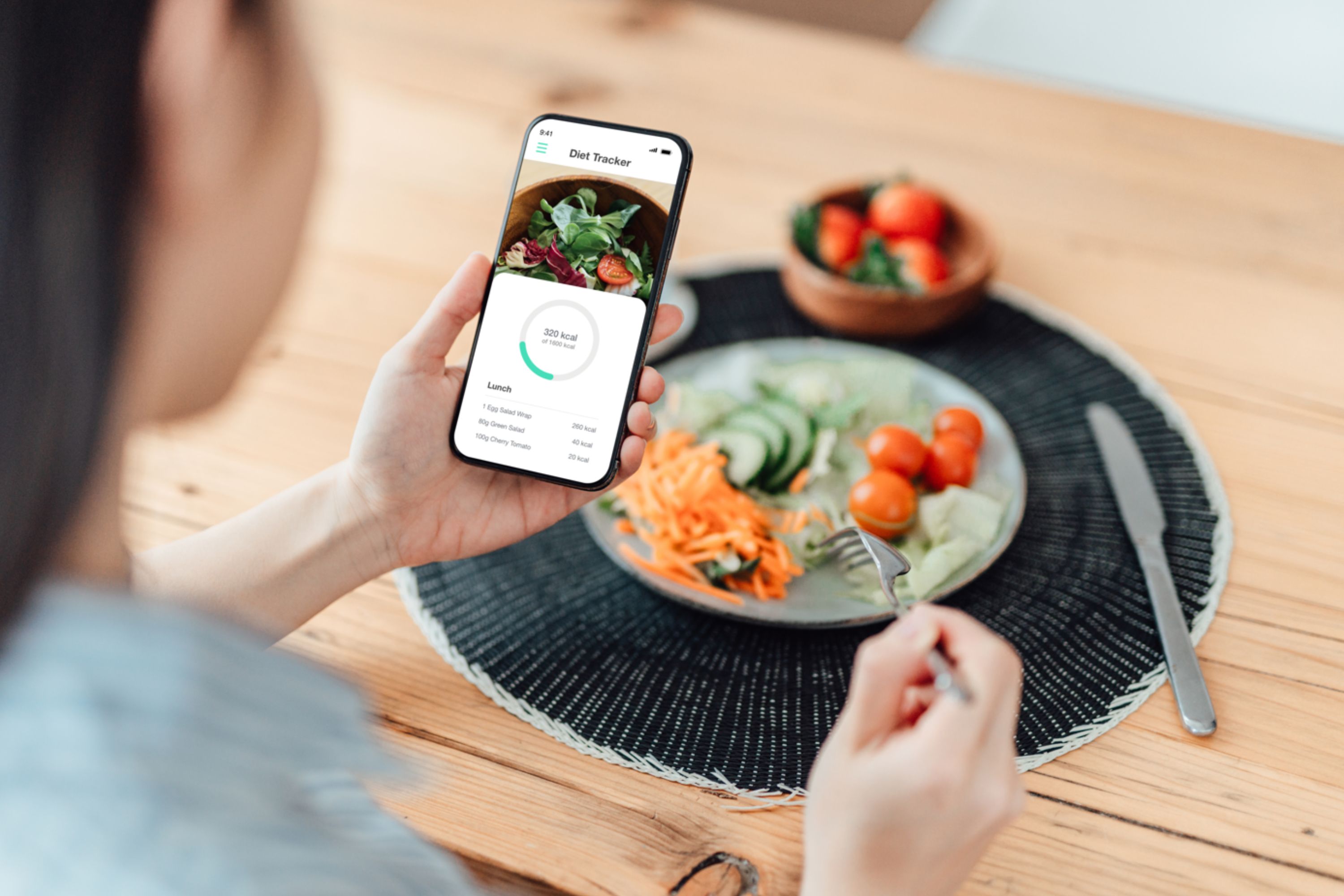
A study by the American Council on Exercise and the Exercise and Health Program at the University of Wisconsin-La Crosse looked at 10 different occupations and how many steps each person did every day. A mail carrier, for instance, does around 18,904 steps per day according to the study, working out to about 882 more calories burned per day than a secretary, who will burn roughly 196 calories throughout the day.
However, it's a little bit more complicated than this. How many calories you'll burn per day - either just through your bodily functions or with the addition of exercise - also depends on three main factors.
GoodtoKnow Newsletter
Parenting advice, hot topics, best buys and family finance tips delivered straight to your inbox.
- Weight/Height: The more you weigh, whether fat mass or muscle mass, the more calories you'll burn. Taller people tend to also weigh more because they are supporting more mass.
- Sex: Men tend to have more muscle and less fat mass than women, meaning they burn more calories.
- Age: The amount of muscle you have tends to decrease as you get older, slowing down the amount of calories you burn.
How many calories do I burn without exercise?
The average person burns around 1800 calories a day doing absolutely nothing. For example, according to the Healthy Eating Guide, sitting burns an estimated 75 calories per hour.
This number will vary, however. A sedentary woman aged 19 to 30 burns 1,800 to 2,000 calories daily, while a sedentary woman aged 31 to 51 burns about 1,800 calories per day.
Dr Potter explains, "The number of calories you burn each day depends on your body composition first and foremost. What that means is, the more fat-free mass you have (the body weight you have that’s not made up of fat, e.g. muscle) is the main determinant of how many calories you’ll burn."
Muscle mass vs fat mass
It's a common misconception that muscle weighs more than fat, but the difference is actually in their density. Muscle is harder and denser than fat, so has a smaller volume and therefore takes up less space than fat.
They also have different functions: Fat helps insulate the body and trap body heat, while muscle boosts your metabolism (the process by which the body changes food and drink into energy). This means the more muscle you have, the more calories you burn when you’re at rest, as demonstrated by a study from the University of Cambridge. Therefore, those with a low body weight but a poor muscle-to-fat ratio are at higher risk for obesity-related conditions such as diabetes and heart disease.
But while we all want to believe that you can lose weight without diet or exercise, this is largely untrue. So, when you’re thinking about what exercise you may want to include in your regime, Dr Potter says that if you want to burn calories in the long-term then it helps to build muscle - or at least hang onto the muscle you already have.

How many calories do I burn during exercise?
How many calories you burn during exercise varies wildly depending on a number of factors, including weight, height, sex and age, as well as the exercise you are doing. Being cold can also burn calories, but during high-intensity exercise, you'll likely burn more in the heat than in the cold.
If you’re looking to take up an exercise that burns the most calories per minute, there are some that are a better choice than others. This is how much a 68kg, 5ft 6 woman in her 30s may burn per minute when working at an average pace:
- Running: 11 calories
- Spinning/indoor cycling: 11 calories
- Skipping: 10 calories
- HIIT/Interval training: 10 calories
- Swimming: 10 calories
- Jogging: 8 calories
- Cycling: 7 calories
- Boxing: 6 calories
- Tennis: 5 calories
- Rowing: 5 calories
- Pilates: 4 calories
- Strength training/weightlifting: 4 calories
- Walking: 2 calories
- Yoga: 2 calories
Ultimately, the most successful exercise will be the one you enjoy most. While running tends to burn more calories than cycling, if the idea of going out for a run fills you with a deep dread, you’re less likely to go.
You could also try joining an exercise class at your local gym if you don't feel confident in your own knowledge of exercise and equipment, or even visit a personal trainer for a workout that's tailored to your fitness goals.
If you’re relatively new to exercise and still finding your groove in what you do and don’t like, Dr Potter says there’s one type of exercise that’s perfect for those looking to lose weight.
He says, "If I was going to pick one exercise for somebody whose goal is weight-loss, knowing that people are a bit crunched for time, I would definitely push them towards doing strength training."
Not only is strength training (otherwise known as resistance training - where you tone your muscles by contracting them against a resisting force) proven to burn more calories in the longer term, whether that be weightlifting or exercises that rely only on body weight, it’s also better for maintaining an all-round body composition.
"If those who are losing weight don’t do resistance training," Dr Greg Potter says, "They’ll end up losing a big proportion of their mass as fat mass but also a relatively substantial portion of their mass as fat-free mass. They’ll lose muscle mass and bone mass and so on as well. However, if they do resistance training, they’ll hold onto a lot more of their fat-free mass."
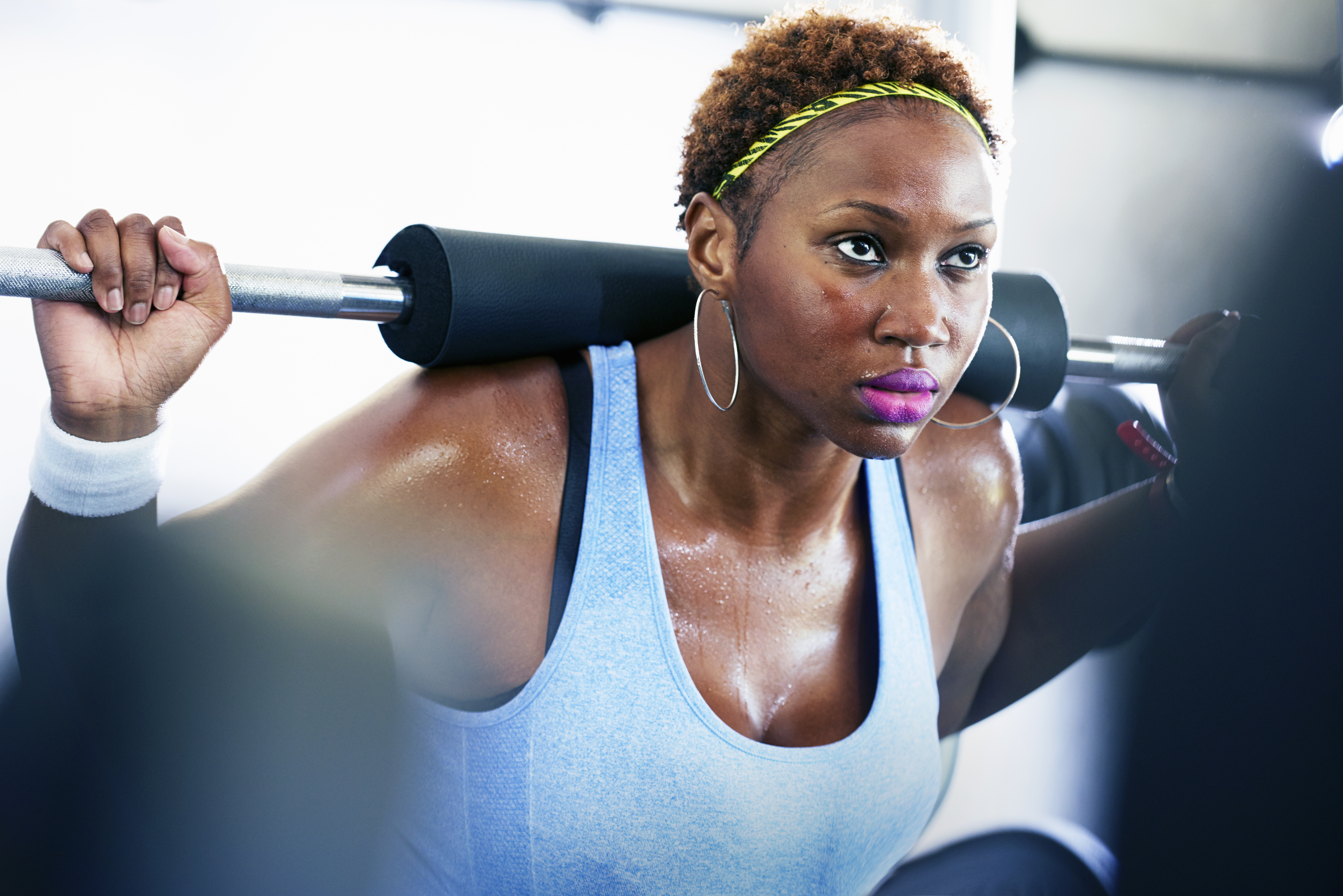
How many calories should I eat a day?
According to the NHS, the number of calories that should be consumed per day is 2,500 calories for a man and 2,000 for a woman. However, this number actually depends on a whole range of factors, including whether you’re looking to gain pounds or wondering how to lose weight.
Typically, to lose weight you have to eat 500 calories fewer than your maintenance level. If you have a calorie deficit of 500 per day you’ll lose one pound per week, according to a study published in The American Journal of Clinical Nutrition.
Using the NHS' recommended daily intake guidelines, the number of calories that should be consumed by women trying to lose weight should be 1,500 per day, or 2,000 for men. It is not recommended to eat fewer calories in a day than this.
Many people use a calorie counter to manage how many calories they eat a day, and set a daily calorie limit, depending on how much they want to lose, maintain or gain weight, and literally count the number of calories they consume.
However, nutritionist Jenna Hope offers a word of warning about calorie counting. She says, "Minor calorie restriction can be an effective way to lose weight in the short term. However, it can contribute to a poor relationship with food and isn’t sustainable in the long term."
She adds, "Long-term excessive calorie restriction is also not a safe way to lose weight, as it can contribute to nutritional deficiencies and impaired metabolic function. Additionally, long-term restriction can therefore lead to further weight gain once the individual stops restricting calories."
8 calorie counting weight loss tips:
1. Weigh and measure your food and drink
Calorie counting relies on you knowing both the amount of calories you're consuming throughout the day and how many you burn. There are apps that can help with this, and here are some that we recommend:
While there’s no guarantee that the nutritional information in the app will be entirely correct, you do have the option to scan labels and input the nutritional information yourself.
And you can also try fitness trackers such as smartwatches to help with this. If you have a Fitbit, you can record your calories within the Fitbit app, which will then weigh up the number of calories you’ve eaten throughout the day with the number you’ve burnt, whether through exercise or daily movement.
2. Limit calorie tracking to two weeks
While athletes and professional sports people may be able to make calorie counting sustainable, it’s not achievable for the everyday person. But calorie counting for a week or two is a good way to discover what's actually in the food you're eating.
"Some people, when they're starting out, they really don't know what's in food. They don't really know what carbohydrates are, they don't know which foods are rich in protein, and so on. And so assuming somebody has a relatively healthy relationship with food, but they don't really know what's in food, I think calorie counting can be helpful. And I think the actual process of tracking [eating] behaviour is often helpful too," Dr Potter says.
3. Focus on the food you're eating - not just the calories
When it comes to counting calories, it’s also important to look at the nutritional information of the food you’re eating.
"Ensure you’re focusing on the nutrient density rather than solely the calories," Nutritionist Jenna Hope tells us. "For example, oatcakes contain more calories than rice cakes but they’re also higher in fibre and B-vitamins. Fibre contributes to satiety and so they’ll leave you feeling fuller for longer."
Having a source of complete protein is also important, Dr Potter says. "A fist-sized source of complete protein at each meal is a pretty good place to start. These are basically all animal sources of protein - and there are some plant ones too. It's important for fat-free mass but it's also the most satiating of all the macronutrients. One gram of protein is more satisfying that one gram of carbohydrate or fat on average. And so, protein is very good at keeping hunger at bay relative to the other macronutrients."
He also adds, "You burn more calories digesting protein than you do burning carbohydrates or fats on average."
4. Don't cut your calories too low
According to NHS guidance, if you need to lose weight you should aim for a loss of maximum 2 pounds per week until you reach a healthy weight for your height.
"You should be able to lose this amount if you eat and drink about 500 to 600kcal fewer a day than you need," they say.
Cutting your calorie intake by more than this can have a serious impact on your health. They're not easy diets to follow through with and they can have dangerous side-effects.
Side effects of a low-calorie diet can include:
- Feeling constantly hungry
- Feeling low on energy
- A dry mouth
- Diarrhoea or constipation
- Headaches
- Dizziness
- Cramps
- Hair thinning
If you experience any of these symptoms, you should stop restricting your calorie intake.
5. Focus on long-term lifestyle changes
Ultimately, calorie counting is often not sustainable in the long-term and weight loss is affected by many other factors - not just what you put into your body.
“Weight can also be heavily affected by sleep and stress too. Therefore, try to ensure you’re getting ample sleep and that you’re managing stress where possible too,” Jenna says.
So, if you're finding that eating a low calorie diet isn't helping you achieve your weight goals, you might want to start to look elsewhere for ways to help you progress.
6. Try high-volume eating
The worst part of counting calories will be feeling hungry. This is almost inevitable if you’re reducing the amount of food you’d normally eat in a day.
High-volume eating can work to counteract this. It’s a strategy of eating where you consume a large amount of food while not exceeding your calorie goals, by eating a lot of food that’s low in density, i.e. low in calories.
It’s based on the idea that a food’s physical weight and the number of calories it has is not directly linked. For example, 160g of (cooked) red lentils works out to be about 154 calories. While 170g of (cooked) white pasta works out to be almost double this at 282 calories.
This is because white pasta is significantly richer in carbohydrates, which have a higher calorific value, than red lentils. So by eating for volume, you can eat more food while consuming less calories.
7. Make sensible food swaps
Swapping out calorie-dense foods for lighter ones means you have more calories to work with.
But this doesn't even need to be as extreme as swapping your favourite spaghetti bolognese for lentils. It can be something as simple as swapping from whole milk to sugar-free oat milk. The difference between the two may only be 20 calories per 100ml, but if you drink multiple cups of milky tea or coffee every day it can really add up.
8. Try zig-zag calorie counting
Not only is eating exactly the same number of calories every day likely to get boring very quickly, as you’ll undoubtedly find yourself sticking to similar foods, there’s also evidence to suggest that it will stop working after a while.
For example, one 2015 study from the The American Journal of Clinical Nutrition found that a three-week low-calorie diet decreased participants' metabolisms by more than 100 calories.
Zigzag calorie counting aims to combat this as you alternate the number of calories you eat on any given day. The same study found that when they switched participants onto a higher-calorie diet in the fourth week of the program, their metabolism increased to above the starting level.
For it to work, you should have a combination of high-calorie days and low-calorie days. All these add up to your weekly calorie target.
So for example, if your weekly calorie target is 14,000 calories per week (2,000 per day) then you may eat 2,300 calories for three days a week and 1,775 for the other four days of the week.
This method of calorie counting prevents the body from adapting to the lower number of calories and putting you into a weight loss plateau. For example, a seven-week study published in the Journal of Functional Morphology and Kinesiology diet found that a heavy carbohydrate "refeed" for two consecutive days was more effective at preventing the loss of fat-free mass than a continuous cycle of energy restriction. They also discovered that the participants' resting metabolic rate was slightly better maintained.
And a second study from the Obesity Society also confirmed that intermittent low-calorie diets were more effective for weight loss than continuous restriction.
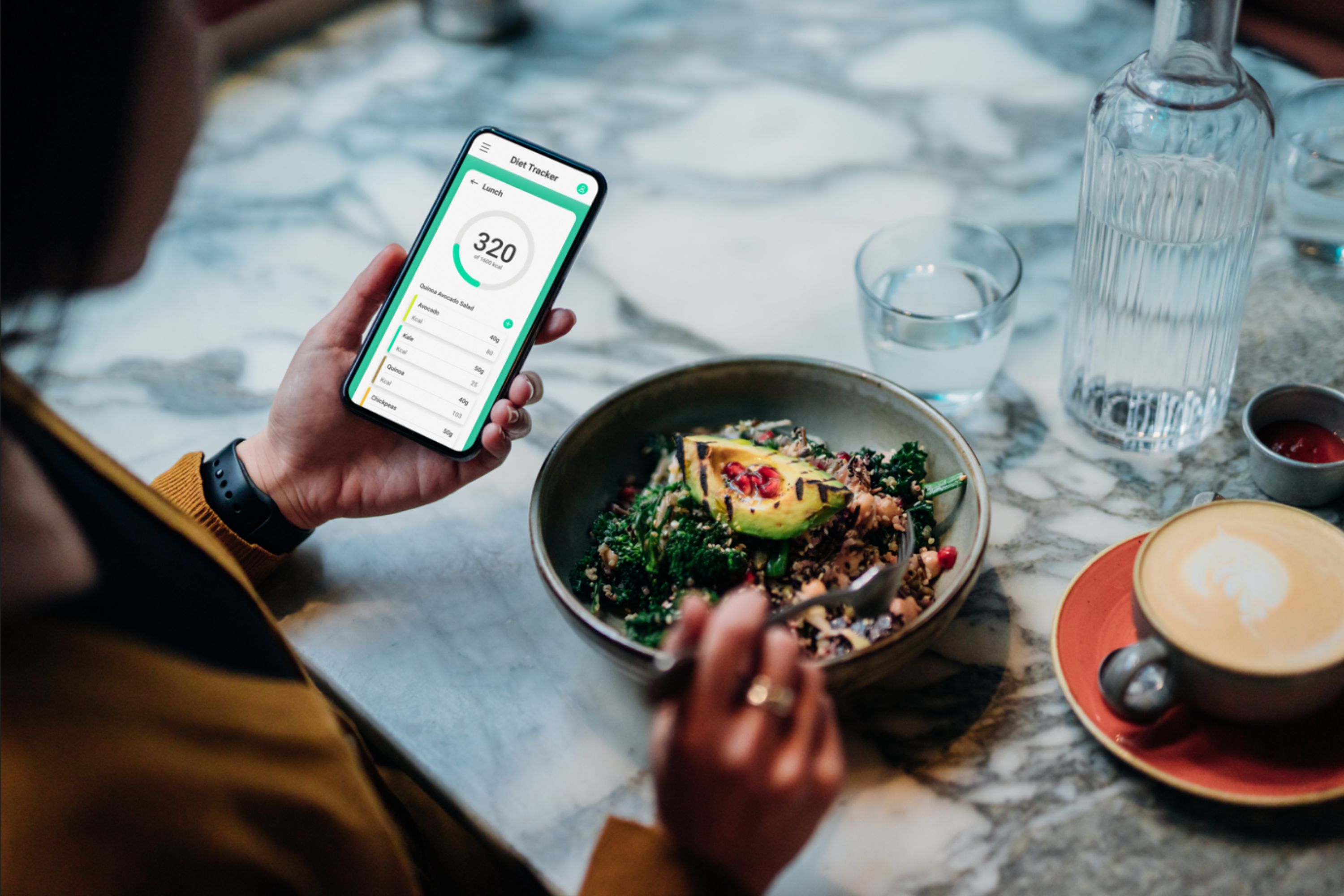
Calorie counting: Is it for you?
- It's not the healthiest way to lose weight: Nutritionist Jenna says, "Calorie counting is generally not the healthiest approach to losing weight. It oversimplifies nutrition and dietary choices. Making healthy decisions should be based on a wide range of factors including proteins, fibre and micronutrients."
- The nutrition label on the back of food packets isn’t always correct: If you do decide to calorie count, be aware that the nutritional information won’t always be true. "The calories listed on food labels are often inaccurate," Jenna told us.
- Lack of nutrition labels: If the labels aren't always correct (or they don't exist), you'll have to make an educated guess. You'll have to base your plan around the nutritional values you do know - if you know any of them.
- It depends on your lifestyle: If you’re someone who enjoys going out to eat or drink, at a friend's house or in a restaurant, you're naturally going to find it harder to count calories, because you won't always know the calorific value of the food you're eating.
- You may experience a negative impact on your mental health: "Tracking calories can become all-consuming and can have a negative impact on mental wellbeing," Jenna says. And it’s particularly not recommended for those who have experienced disordered eating in the past - one study published in the Eating Behaviours journal found that out of 105 people diagnosed with an eating disorder, 75% said that they used an app to count their calories.
Calorie counting is not for everyone, and it's important that you do it properly. A 2022 study from the Yale University School of Medicine showed that while moderate calorie restriction led to the identification of a gene that is involved in improved immune and metabolic functions, extreme caloric restriction (a 40% reduction in calories) is associated with impaired immune function, which can lead to more severe infections.
And counting calories is not the only way to change how you eat to lose weight - simple things like adjusting portion sizes and making sure your meals are made up of the right types of food can also make a big difference. Why not download the NHS's free weight loss plan app to help you start healthier eating habits, be more active, and start losing weight.
We spoke to the following experts:

Greg has a BSc in exercise science and an MSc in exercise physiology. Greg’s PhD research focused on sleep, circadian rhythms, nutrition, and metabolism and highlights of his career include having this research featured in dozens of international news outlets and magazines, including BBC, Reuters, The Washington Post, Metro and Stylist. Greg helps individuals and organisations sustainably improve their health and performance by developing and popularising innovative businesses and products, coaching, public speaking, consulting, and empowering people through educational resources.
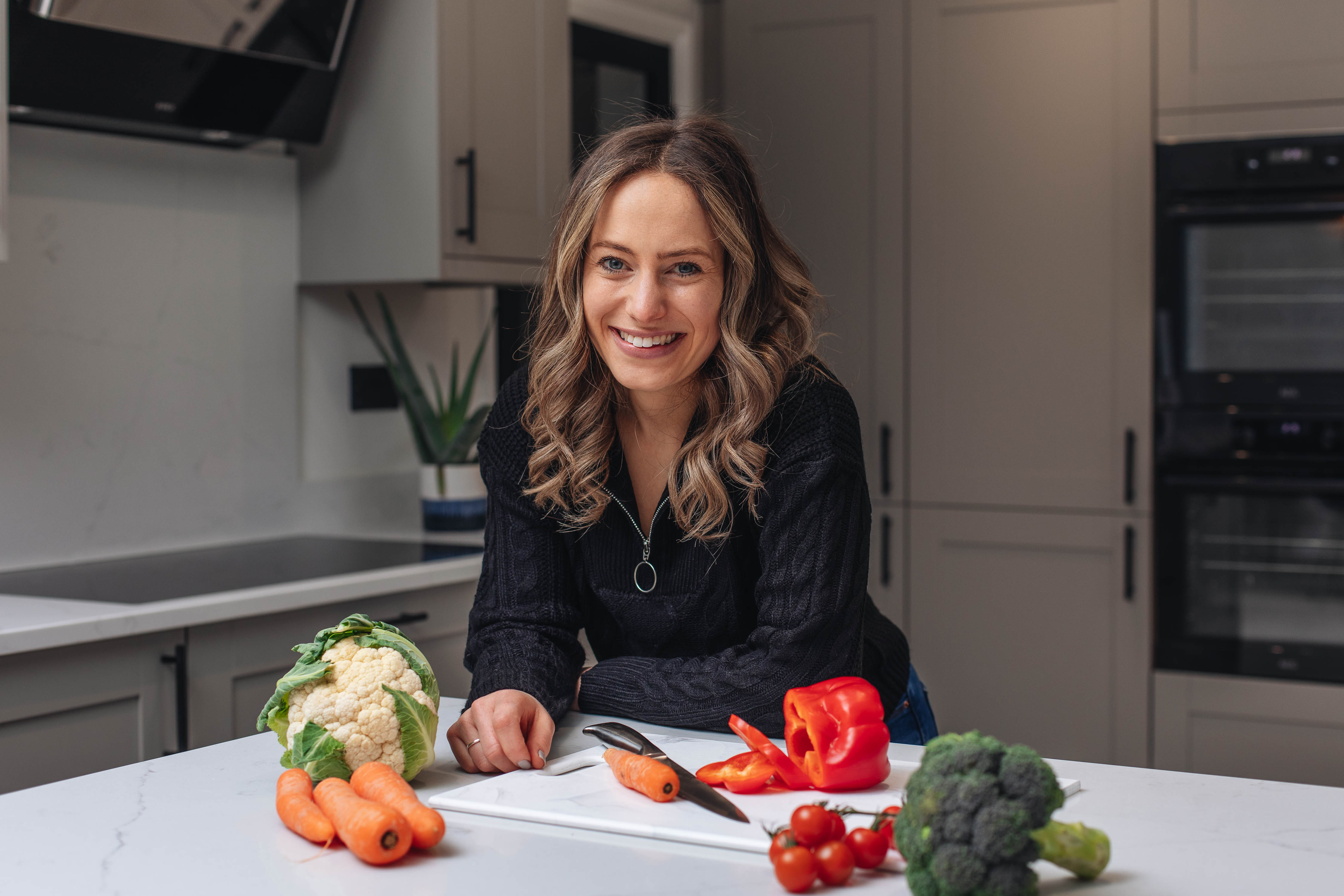
Jenna Hope is a Registered Nutritionist with an undeniable passion about making nutrition smarter, clearer and simpler, she provides quick, easy, nutrition advice which you can implement everyday. Founder of Nutrition consultancy firm Jenna Hope Nutrition, Jenna works closely with individuals, corporate clients and brands to implement smarter strategies for nutrition and to support health and wellbeing for the long-term.
If you looking for more diet plans that can help you reach your weight loss goals, we've spoken to the experts about the Fast 800 Diet, the 5:2 diet and the 16:8 diet too. We've also rounded up 14 celebrity diets - but you might want to steer clear of some of these.

Grace Walsh is a health and wellbeing writer, working across the subjects of family, relationships, and LGBT topics, as well as sleep and mental health. A digital journalist with over six years experience as a writer and editor for UK publications, Grace is currently Health Editor for womanandhome.com and has also worked with Cosmopolitan, Red, The i Paper, GoodtoKnow, and more. After graduating from the University of Warwick, she started her career writing about the complexities of sex and relationships, before combining personal hobbies with professional and writing about fitness.
- Ellie HutchingsFamily News Editor